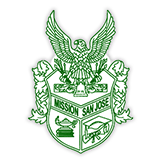Hazing/Initiation Rituals
Many athletic/extra-curricular programs today are quick to promote and condone time-honored traditions. Many of these traditions are wholesome and a positive part of the total experience. Unfortunately, some traditions from the past are both dangerous and illegal. These dangerous traditions often center on initiations and rites of passage required of younger teammates by their older counterparts. Many times these initiations are nothing more than disguised forms of hazing. However, these events can sometimes get out of hand and the physical and emotional welfare of all involved is at great risk.
The administration of this school tries to make it clear to coaches, parents and athletes that hazing and initiations are never to be part of our program. Quite often, acts of hazing and initiations can escalate to the point that the student-athlete is at risk. It is also quite possible that many acts of hazing and initiation will result in legal action being taken against the coach, athlete, administration or the school district.
The administration of Mission San Jose High School has adopted a "ZERO-TOLERANCE" stance on the hazing of students and athletes. The hazing and initiation policy is in our coaching handbook and is also in our student athletic handbook. The school and the school district make the same statement with their written policies.
Any student who participates willingly in a hazing or an initiation ritual is subject to disciplinary action, including:
- A 5-day suspension
- Removal from their respective athletic/extra-curricular team
- Termination of all athletic/extracurricular activities for one calendar year
- Possible legal action dependent on the severity of the incident
Any student-athlete who observes and does not attempt to stop or report such a violation can also be subject to disciplinary action by our school. Repeated acts of hazing and initiation can result in further school action.
20 Most Common Examples of Hazing
- Assigning pranks such as stealing, painting objects or harassment of other groups.
- Modifying one's appearance with unusual haircuts, shaving, tattoos or skin markings.
- Engaging in public acts of buffoonery.
- Consumption of undesirable foods and/or liquids.
- Apparel that is embarrassing, lewd or interferes with the educational atmosphere.
- Playing games where the loser must perform embarrassing acts.
- Agreeing to do demeaning tasks for others (servitude).
- Spanking, swatting or hitting with great force.
- Throwing in the shower, dousing, powdering or dumping in the toilet or urinal.
- Requiring acceptance of verbal abuse and/or name-calling.
- Sitting or standing in uncomfortable positions.
- Pushing, shoving or tackling team members under orders from others.
- Sexual activity of any kind.
- Any use of alcohol or drugs.
- Any tests of emotional stability.
- Disruption of sleep.
- Spreading false rumors.
- Any process that produces mental anguish.
- Any act that could pose a safety risk to the student-athlete.
- Any act that could bring shame or discredit to the team or school
